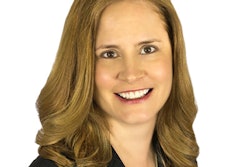
A great mentor once said these wise words to me: "Try to love every idea for 15 minutes." His reasoning was that we should open our minds and spirit to new ideas, and new ideas can bring innovation. After all, management is often about change.
My mentor's advice kept me flexible in my thinking about the three kinds of leadership styles. For those who don't know, the styles are as follows:
- Authoritative:
- Uses long-term direction
- Focuses on end goals
- Has more experience than those being lead
- Gives clear direction and sets standards
- Democratic:
- Asks for consensus on decision-making
- Allows others to take the lead
- Uses collaboration and communication
- Affiliative:
- Creates a cohesive unit by emphasizing teamwork
- Focuses on team's emotional needs
- Often successful alongside a visionary leader who carries out these ideas with precision
When I set out to be an office manager many years ago, I didn't think about what style of leader I wanted to be. I focused on systems and integration more than anything else. I knew that I wanted to have an open-door and open-mind policy. This style came naturally to me.
In time and through experience, I realized that although I had set my style, I have been able to remain open to and use all three styles in my day-to-day work. As you will see in the examples presented, successful leaders work with solid core beliefs and virtues that are stable and unwavering in their modalities.
The following are examples of situations that transpired in my office and can help demonstrate how successful leaders know how to use the right leadership style at the right time.
Authoritative leadership helps to integrate new software
Our owner dentist wanted a software system that could text with clients to reduce our number of phone calls. I came across a great system that permits us to communicate by two-way text with our clients. I researched all information regarding the product, and once we had done our due diligence, we implemented the new software.
 Rosa Pasquantonio.
Rosa Pasquantonio.I informed our administrative team that we were now integrating texting, and we began training soon after installation. But the administration team found it challenging to integrate the system, as they did not have enough room on their desktops to see the full program. Once the team received their new screens, it became easier to work with the software.
When I saw the team was more comfortable with the software, I approached them again and asked if they needed further help. They mentioned that they needed more training, so I organized training for them. After all, onboarding the new software and raising their comfort level were the main objectives.
Authoritative with integration! Mission accomplished.
Democratic leadership creates a win-win for onboarding
Until a little while ago, I was participating in our new-patient consultation process. But with the addition of a new associate, the practice became busier. Although I enjoyed the contact with the public, I realized that I could no longer sustain the roles of treatment coordinator and office manager simultaneously.
I presented the idea of hiring a new administrative team member to the owner dentist. After weighing the pro and cons, my recommendation was accepted. I went on to hire a new team member and, in the process, engaged the administrative team in the onboarding process of our newest member.
The administrative team collaborated in our new colleague's training, and I must say that their enthusiasm was delightful. Once training was complete, they distributed the tasks amongst themselves. It was obvious that this arrangement was successful by their empowered demeanor.
This was a win-win situation for me and the administrative team. Democracy lives!
Affiliative leadership through mentoring
I am now at a place in my career where I'm mentoring the next generation in our dental practice. Mentoring brings the teacher in me to the surface. After all, I know talent when I see it.
My plan is to mentor and cross-train mentees for their own future and for the future of the practice. In doing so, I am not only setting a tone of learning but also providing the opportunity of advancement to a person who is wanting to take his or her career to the next level.
The opportunity for mentorship also provides excellent value and trust to the entire team and to the owner dentist. It demonstrates that passing the torch to the next generation can be both gratifying and successful.
In being an affiliative leader, I am emphasizing teamwork through cross-training. In addition, the visionary owner dentist knows that passing the torch to a colleague is important to the development of office systems and can be very beneficial to our team.
Using all 3 styles to accomplish great things
Humility is the key to successful management. As leaders, we should take the opportunity to become a better version of ourselves in every situation -- no matter what leadership style we naturally migrate toward.
Every day, we may come across some difficult situations and complex individuals. If handled well, and with the right leadership style, we will have the chance to achieve great things!
Rosa Pasquantonio is the office manager at TGO Orthodontics in Montreal, where she helped create and perfect "The TGO Way." Rosa has been in the dental field since 1980 and has a certificate in administration and human resource management from Concordia University. She is a fellow of the American Association of Dental Office Management (AADOM) and achieved her AADOM Mastership in 2020. In 2019, she was the recipient of the Practice Administrator of Distinction award.
The comments and observations expressed herein do not necessarily reflect the opinions of DrBicuspid.com, nor should they be construed as an endorsement or admonishment of any particular idea, vendor, or organization.



















